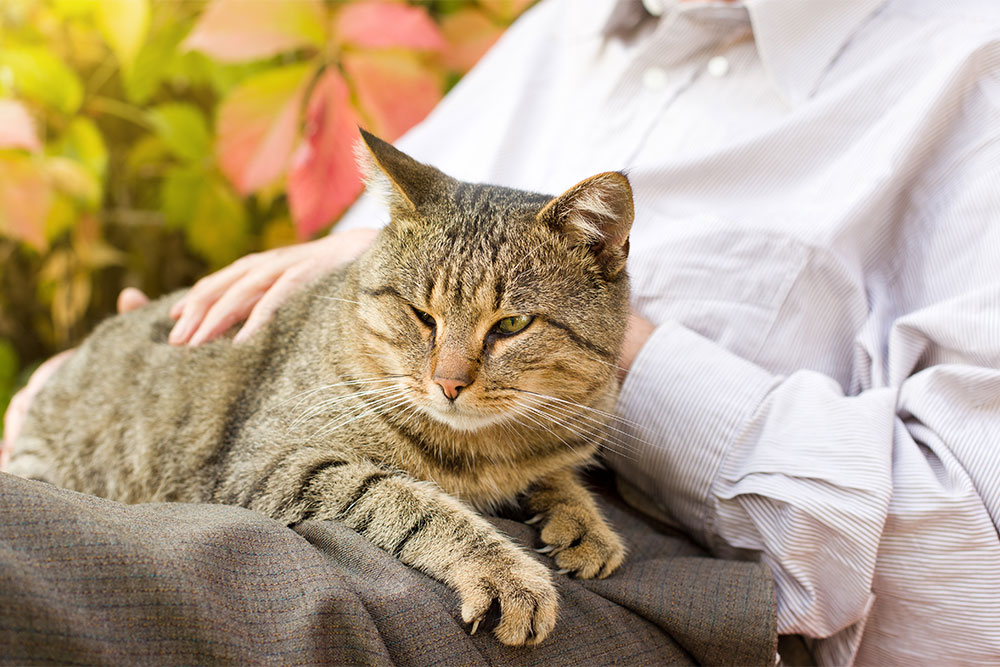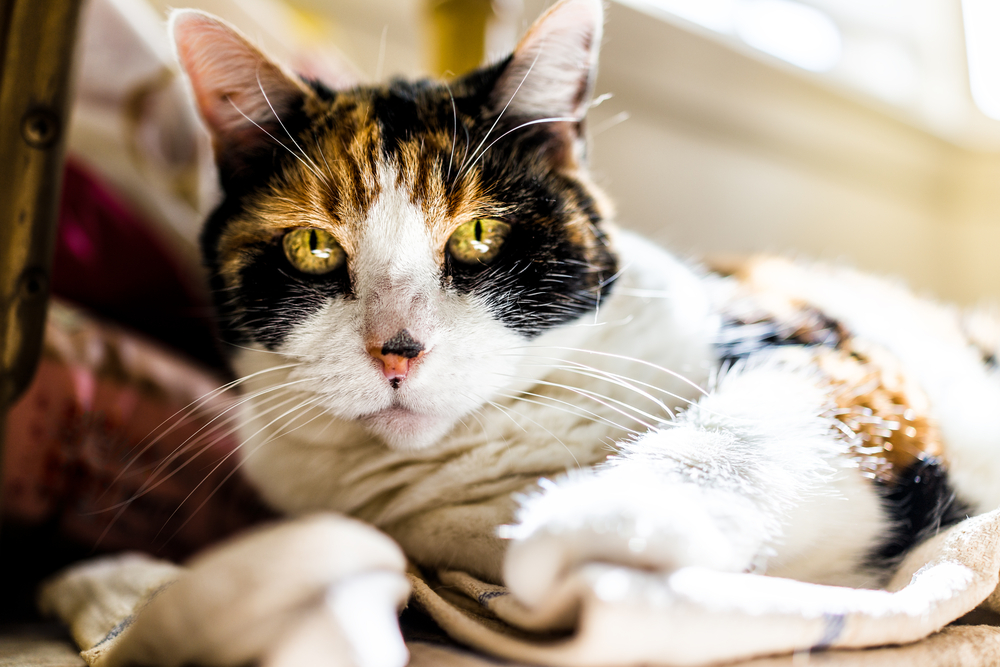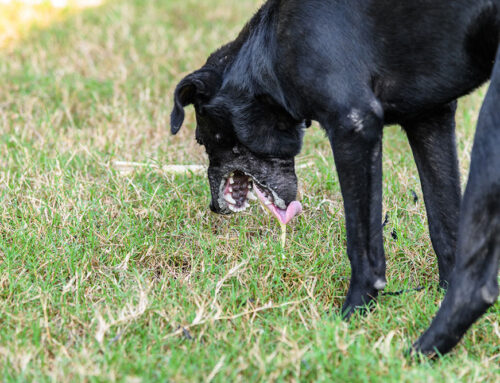Senior Cats and Urgent Care: When Aging Turns Critical
As cats age, their bodies change in subtle- and sometimes not-so-subtle- ways. You might notice your cat skipping their usual leap to the windowsill, sleeping more, or drinking more water than they used to. Many of these shifts are part of the natural aging process, but some are early signs that something more serious is brewing.
At Peak Pet Urgent Care in Reno, Nevada, we frequently see senior cats in urgent care for complications tied to chronic conditions. In this article, we’ll walk through the most common age-related diseases in cats, what symptoms should prompt an urgent visit, and how you can support your cat at home and in between checkups.
What Counts as “Senior” in Cats?
Most cats are considered senior by age 11, and geriatric around 15. Older cats are more prone to illness and injury, and their ability to bounce back is often slower. That’s why even minor symptoms can escalate quickly- and why being proactive matters so much.
Regular vet visits are essential, but it’s just as important to recognize when something needs more immediate attention. The AAHA senior care guidelines offer a helpful baseline, but when something feels off, urgent care can fill in the gaps.
Arthritis in Cats: When Pain Becomes a Crisis
Chronic joint pain is common in older cats and often goes unnoticed until it interferes with daily life.
Watch for urgent care signs like:
- Sudden refusal to walk, eat, or use the litter box
- Severe limping or inability to move
- Painful vocalizations when touched
If your cat seems to be in acute distress or can’t get up, it’s time to come in. These signs may indicate not just arthritis, but fractures, nerve pain, or injury. Learn more about arthritis in cats.
Chronic Kidney Disease: Subtle Decline, Serious Risk
Chronic kidney disease (CKD) is one of the most common conditions we see in senior cats- and one of the most likely to trigger an urgent visit.
Know the emergency signs:
- Vomiting that persists or contains blood
- Weakness, tremors, or collapse
- Strong ammonia smell on breath
- Refusal to eat or drink for 24+ hours
CKD often progresses quietly until symptoms suddenly worsen. In advanced stages, cats may become dangerously dehydrated or develop electrolyte imbalances. Learn more from the International Renal Interest Society (IRIS) and this guide to giving subcutaneous fluids at home.
Hyperthyroidism: High Energy, Low Stability
Hyperthyroidism speeds up a cat’s metabolism and can stress the heart, kidneys, and digestive system. While it often starts with weight loss and restlessness, it can tip into a crisis fast.
Urgent symptoms include:
- Fast or irregular heartbeat
- Extreme agitation or confusion
- Repeated vomiting or diarrhea
- Sudden weakness or collapse
Without treatment, hyperthyroidism can cause cardiac complications or hypertensive crises- both of which warrant urgent or emergency care.
Diabetes in Cats: A Delicate Balance
Diabetes requires careful management, and it doesn’t always go according to plan. Missed insulin doses, changes in appetite, or hidden infections can quickly throw things off balance.
Signs of a diabetic emergency:
- Lethargy, weakness, or collapse
- Vomiting or dehydration
- Seizures
- Sudden disorientation or “drunken” walking
These may indicate hypoglycemia (low blood sugar), diabetic ketoacidosis (DKA), or other critical complications. Diabetic cats need immediate care if they’re acting “off.” The AAHA diabetes guide can help you understand daily management, but when in doubt- call us.
Cancer in Senior Cats: When a Lump Becomes More
Cancer can grow silently, but it can also lead to sudden changes that signal something’s wrong.
Warning signs that need urgent care:
- Bleeding or ulcerated masses
- Difficulty breathing or swallowing
- Collapse or sudden lameness
- Severe weight loss in a short time
Not every tumor is life-threatening, but some can rupture, become infected, or interfere with critical systems. If something changes quickly, it’s safer to have it checked right away. Learn more about cancer types in pets.
Cognitive Dysfunction Syndrome: When Confusion Becomes Concerning
Also known as feline dementia, Cognitive Dysfunction Syndrome (CDS) typically causes gradual changes. But it can sometimes lead to behaviors that mimic more serious conditions.
Urgent signs to watch for:
- Getting stuck in corners or behind furniture
- Inability to find food, water, or litter box
- Excessive nighttime vocalizing
- Panicked or aggressive behavior
If your cat seems disoriented and can’t care for themselves, urgent care can rule out other conditions like seizures, brain tumors, or acute pain. Here’s a guide on spotting signs of cognitive decline.
Vomiting in Senior Cats: It’s Not “Just Hairballs”
It’s easy to chalk up vomiting to age, diet, or hairballs- but for older cats, it can signal deeper issues: kidney disease, diabetes, cancer, or GI obstruction.
Red flags for urgent care:
- Multiple episodes in a day
- Blood in vomit
- Refusing to eat or drink afterward
- Vomiting with lethargy or collapse
Don’t wait and see. Dehydration and electrolyte loss happen fast. Use this Cornell vomiting guide to spot when it’s serious.
What You Can Do at Home- And When to Come In
You know your cat best. If something feels off, it’s worth checking in. Use these strategies to support your senior cat daily, and watch for patterns that change suddenly.
Daily Support Tips
- Make litter boxes easy to access and monitor output
- Watch water and food intake (more or less can both be problems)
- Weigh your cat weekly if possible
- Keep notes on any changes in energy, appetite, or behavior
And when you’re not sure? This emergency symptom checklist can help you decide.

Know What to Expect at Peak Pet Urgent Care
We’re not a replacement for your cat’s regular vet- but we’re here when something can’t wait. Our urgent care team handles a wide range of conditions and complications, from vomiting and labored breathing to diabetic crashes and collapsing senior cats. See what urgent care covers and what to expect at your visit.
If your cat is struggling and you’re not sure whether it’s serious, give us a call or come in. We’ll help you decide.
We’re Here to Help- Even When Aging Gets Complicated
Getting older comes with its share of changes. Some are normal, and others need medical attention. At Peak Pet Urgent Care in Reno, Nevada, we’re here to catch the in-between moments- when your cat needs help fast, but not necessarily a trip to the ER.
We’re proud to be part of your cat’s care team. Whether you’re facing a sudden change in behavior or a concerning symptom, don’t hesitate to contact us or meet the team. Together, we’ll help your cat stay safe, comfortable, and supported at every stage of life.







Leave A Comment